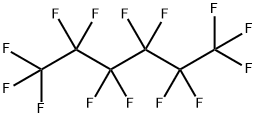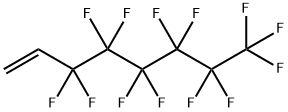1H,1H,2H,2H-Perfluorodecyltrichlorosilane
Synonym(s):;F-DTS;p-DTS(FBTTh2)2
- CAS NO.:78560-44-8
- Empirical Formula: C10H4Cl3F17Si
- Molecular Weight: 581.56
- MDL number: MFCD00042344
- EINECS: 616-629-4
- SAFETY DATA SHEET (SDS)
- Update Date: 2025-01-27 09:38:02

What is 1H,1H,2H,2H-Perfluorodecyltrichlorosilane?
Chemical properties
colourless to straw-coloured liquid with an odour of hydrogen chloride
The Uses of 1H,1H,2H,2H-Perfluorodecyltrichlorosilane
1H,1H,2H,2H-Perfluorodecyltrichlorosilane (CAS# 78560-44-8) is a useful compound used as part of antireflective coatings for solar cell efficiency improvement. The high level of hydrophobicity of 1H,1H,2H,2H-Perfluorodecyltrichlorosilane also makes it useful as coating for electrical insulators.
What are the applications of Application
DTS(FBTTh2)2 can be used as a conjugating polymer that forms a donor-acceptor system with acceptor molecules such as perylene diimide, PC71BM and other fullerenes for the fabrication of bulk-heterojunction based solar cells.
A tri-functional fluoro-carbon terminated silane (1H,1H,2H,2Hperfluorodecyltrichlorosilane, PFTCS) was used in solutions of hexane to create surfaces with teflon-like properties.
What are the applications of Application
1H,1H,2H,2H-Perfluorodecyltrichlorosilane is a halogenated compound used for biochemical research
General Description
DTS(FBTTh2)2 is a conductive polymer that can be used as a donor molecule. It has a narrow band gap and shows a maximum power conversion efficiency of 7.0%. Its photostability is more than that of P3HT.
Advantages
As a hydrophobic coating, 1H,1H,2H,2H-Perfluorodecyltrichlorosilane (FDTS) to all surfaces having access to organic coating solutions could minimize release stiction. Replacement of the organic fluids with water produces a condition in which the fluid no longer wets machine components, minimizing capillary forces below the level needed to pull compliant structures into contact. Both octadecyltrichlorosilane and FDTS have the added benefits of reducing in-use stiction, friction, and wear, with FDTS exhibiting lower adhesion. This compound also could be used to establish a facile construction of transparent and amphiphobic coatings. The fluoroalkyl silane groups were grafted onto the ChNFs coating surface after the PFDTS deposition. The prepared transparent and amphiphobic coatings are promising in anti-fingerprint protection for optical lenses/sensors and display screens[1-2].
References
[1] Kushmerick, J. G. , et al. "The influence of coating structure on micromachine stiction." Kluwer Academic Publishers-Plenum Publishers 1(2000).
[2] Wang, P., et al. "Transparent and anti-fingerprint coating prepared with chitin nanofibers and surface modification via vapor deposition." Progress in Organic Coatings (2022).
Properties of 1H,1H,2H,2H-Perfluorodecyltrichlorosilane
| Melting point: | 10-11°C |
| Boiling point: | 224 °C |
| Density | 1.7 |
| refractive index | 1.349 |
| Flash point: | >110°C |
| solubility | Miscible with tetrahydrofuran, tetrhydropyran, toluene and other organic solvents. |
| Specific Gravity | 1.7 |
| Hydrolytic Sensitivity | 8: reacts rapidly with moisture, water, protic solvents |
| Sensitive | Moisture Sensitive |
| BRN | 5889653 |
| Stability: | Stable. Flammable. Incompatible with strong oxidizing agents. |
| InChI | InChI=1S/C10H4Cl3F17Si/c11-31(12,13)2-1-3(14,15)4(16,17)5(18,19)6(20,21)7(22,23)8(24,25)9(26,27)10(28,29)30/h1-2H2 |
| CAS DataBase Reference | 78560-44-8(CAS DataBase Reference) |
| EPA Substance Registry System | Silane, trichloro(3,3,4,4,5,5,6,6,7,7,8,8,9,9,10,10,10-heptadecafluorodecyl)- (78560-44-8) |
Safety information for 1H,1H,2H,2H-Perfluorodecyltrichlorosilane
| Signal word | Danger |
| Pictogram(s) |
 Corrosion Corrosives GHS05 |
| GHS Hazard Statements |
H314:Skin corrosion/irritation H318:Serious eye damage/eye irritation |
| Precautionary Statement Codes |
P301+P330+P331:IF SWALLOWED: Rinse mouth. Do NOT induce vomiting. P303+P361+P353:IF ON SKIN (or hair): Remove/Take off Immediately all contaminated clothing. Rinse SKIN with water/shower. P305+P351+P338:IF IN EYES: Rinse cautiously with water for several minutes. Remove contact lenses, if present and easy to do. Continuerinsing. P405:Store locked up. |
Computed Descriptors for 1H,1H,2H,2H-Perfluorodecyltrichlorosilane
| InChIKey | VIFIHLXNOOCGLJ-UHFFFAOYSA-N |
| SMILES | [Si](Cl)(Cl)(Cl)CCC(F)(F)C(F)(F)C(F)(F)C(F)(F)C(F)(F)C(F)(F)C(F)(F)C(F)(F)F |
New Products
Methyl (R)-1-Boc-4,4-difluoropyrrolidine-2-carboxylate 2,2-Difluoropropylamine hydrochloride tert-butyl 3-bromoazetidine-1-carboxylate (R)-1-Boc-3-hydroxypyrrolidine DIFLUOROACETIC ANHYDRIDE 2,2-Difluoropropionic acid Diallylamine, 99% Calcium hydroxide, 95% Aluminum oxide, basic 2-Bromophenylacetonitrile, 97% L-tert-Leucine,97% N-Hydroxy-2-methylpropanimidamide 4-(3,4-Dichlorophenyl)-3,4-Dihydro-N-Methyl-1-(2H)-Naphthalenimine (Schiff Base) 2-AMINO-3,5-DIBROMO BENZALDEHYDE [ADBA] L-Glutamic Acid Dimethyl Ester Hcl 10-Methoxy-5H-dibenz[b,f]azepine 5-Cyanophthalide N, N-Carbonyldiimidazole (CDI) Dibenzoyl Peroxide Titanium Dioxide 2-(Methylthio) Benzonitrile Sodium Acetate Anhydrous Allopurinol 1,5-DibromopentaneRelated products of tetrahydrofuran








You may like
-
![Cis-2-(Bromomethyl)-2-(2,4-Dichlorophenyl)-1,3-Dioxolane-4-Ylmethyl Benzoate [CBB] 61397-56-6 99%](https://img.chemicalbook.in//Content/image/CP5.jpg) Cis-2-(Bromomethyl)-2-(2,4-Dichlorophenyl)-1,3-Dioxolane-4-Ylmethyl Benzoate [CBB] 61397-56-6 99%View Details
Cis-2-(Bromomethyl)-2-(2,4-Dichlorophenyl)-1,3-Dioxolane-4-Ylmethyl Benzoate [CBB] 61397-56-6 99%View Details
61397-56-6 -
 287930-77-2 / 142569-70-8 99%View Details
287930-77-2 / 142569-70-8 99%View Details
287930-77-2 / 142569-70-8 -
![2033-24-1 2,2-Dimethyl-1,3-Dioxane-4,6-Dione [Meldrum Acid] 98%](https://img.chemicalbook.in//Content/image/CP5.jpg) 2033-24-1 2,2-Dimethyl-1,3-Dioxane-4,6-Dione [Meldrum Acid] 98%View Details
2033-24-1 2,2-Dimethyl-1,3-Dioxane-4,6-Dione [Meldrum Acid] 98%View Details
2033-24-1 -
 Ethyl-2-Chloroacetoacetate 609-15-4View Details
Ethyl-2-Chloroacetoacetate 609-15-4View Details
609-15-4 -
 CIS- BROMO BENZOATEView Details
CIS- BROMO BENZOATEView Details
61397-56-6 -
 609-15-4View Details
609-15-4View Details
609-15-4 -
![1-(6-Methylpyridin-3-Yl)-2-[4-(Methylsulfonyl)Phenyl]Ethanone [Ketosulfone] 99%](https://img.chemicalbook.in//Content/image/CP5.jpg) 1-(6-Methylpyridin-3-Yl)-2-[4-(Methylsulfonyl)Phenyl]Ethanone [Ketosulfone] 99%View Details
1-(6-Methylpyridin-3-Yl)-2-[4-(Methylsulfonyl)Phenyl]Ethanone [Ketosulfone] 99%View Details
221615-75-4 -
 27143-07-3View Details
27143-07-3View Details
27143-07-3
